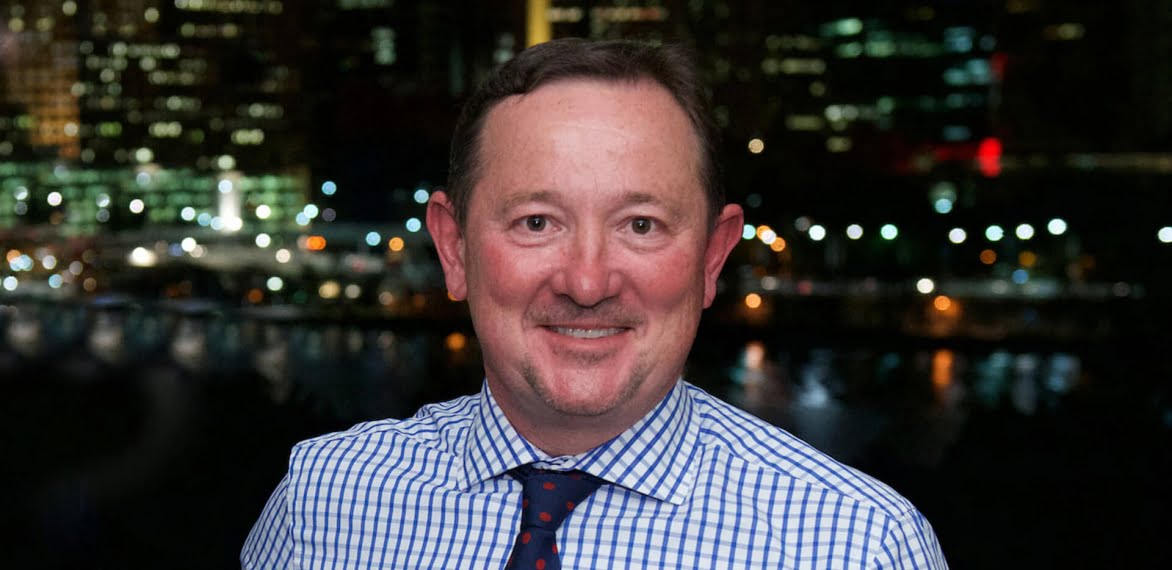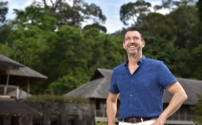15290
TotalViews
Stewart Moore is the founder and CEO of EarthCheck, the world’s leading benchmarking certification and environmental management programme used by the tourism and hospitality sector of the travel industry that help owners, operators and designers reduce costs and reduce their environmental impact on our planet. He is one of Asia Pacific’s most experienced planning and destination management consultants. As a regional and land use scientist, he has worked on a diverse range of projects, from management plans for the Great Barrier Reef in Australia to conservation planning for Giant Panda in China.
We talked to him about how travellers and businesses can work together to safeguard people and planet but still allow business to prosper.
If you had one hour in a room with all the world’s leaders this year – what would you ask them?
I would ask them how they want to be remembered. As leaders who had a vision for the future health of the world and who inspired action, ownership and a commitment to change, or as someone who went missing because of political ineptitude when it got too hard. Climate change needs strong leadership and a mandate for transformative action and outcomes.
I would ask them to rethink their messages to the industry and the community. Sustainability needs to be packaged and sold as a positive initiative rather than as a threat. I would suggest that we now have enough information to know what needs to be done. A science-based approach to GHG emission reduction targets needs to be adopted and a price for carbon needs to be established and incentivised.
As leaders they have overlooked natural capital for too long. The value of natural capital (fresh water, clean air, habitat etc.) needs to be factored back into all economic and social decisions.
All the environmental crisis we face have a huge toll on humanity – on poverty, security, public health and disaster preparedness. The interconnected nature of our eco systems and climate means that no country or community can be immune to any of these threats. How can we best harness human power and creativity to come up with solutions for all of our sakes?
We have enormous opportunities to transition towards the new low carbon economy. This is where the blue economy (entrepreneurship/innovation/disruption) meets the green economy (traditional approaches to sustainable development). This goes back to Gunter Pauli’s book in 2010 where he argued that business, science and civil society can partner for profit.
Today we see new markets emerging for clean energy, electrified transportation, the repurposing of waste, recycling of plastics, smart road ways, and community micro-grids. We hear about the circular economy and net positive strategies where products can be made from non-toxic resources which can be returned to soil or water and repeatedly placed back into manufacturing processes.
Community and industry action needs to be incentivised. Awareness and education need to be fostered, starting with the education of our children and having better informed consumers who will drive action.
There are examples of the negative environmental and social impact of corporate greed all around us. Some companies are starting to realise that addressing sustainability issues can actively spur economic activity and growth – how would you galvanise more companies to act responsibly?
A central philosophy behind the EarthCheck programme is that ‘what’s good for the planet can also be good for business.’
Smart business practices and sustainable action not only delivers efficiency gains across a company, but also results in a substantial improvement in the bottom line. So sustainability can be used as a catalyst for business growth and innovation, rather than a compliance or regulatory burden.
Businesses need to seek new partnerships with service providers to deliver and rethink ways to reduce operational overheads and risk. We need to promote and celebrate the champions and support their efforts.
What in your opinion is the most pressing sustainability issue facing the travel industry today?
We are killing the golden goose, and we need to put the brakes on! Tourism is built on expansive growth models, marketing and hyperbole. The industry does not understand how to manage peak demand, over capacity or what to do when resources such as water, waste and energy become depleted. Other industry sectors do understand this. Just talk to anyone in agriculture!
After 30 years of working at the coal face with destinations and tourism infrastructure across the world, we are now seeing first-hand the growing reality and impact of what happens when destinations become over – crowded and unsustainable. You can’t hope to have a sustainable tourism industry in an unsustainable destination with degraded natural resources. Bali is one of those ‘once most loved’ destinations – the tiny jewel of an island which now receives six million tourists each year and is visibly groaning under the strain on its natural resources and road network. You can add a hundred other destinations to this discussion.
Do you think it’s important for ‘eco’ companies to prove they are sustainable, rather than just say they are?
EarthCheck has always believed that you can’t manage what you don’t measure. Simply saying that you care or saying that you are committed to action is no longer good enough. Operators need to demonstrate in a transparent manner that they practice what they preach.
The consumer market is now very aware of what a responsible company should be doing to manage its operational footprint. A growing number of companies are actively benchmarking and measuring their performance and disclosing their business reports to stakeholders. Everyone else should follow suit.
How does EarthCheck audit sustainable activities in Earthcheck-certified hotels? Imagine you were explaining this to your grandma.
EarthCheck provides visitors with the peace of mind that the operator is making a conscious effort to do the right thing for both the planet and the community in which they are located. Reporting is transparent, based on scientific principles and verified by third parties, and we challenge them to continually improve.
For those interested in the specifics – the purpose of the EarthCheck Company Standard is to provide organisations with a practical scientific framework to guide and deliver environmental and social sustainability. The standard is aligned to and mapped against a wide number of international programmes including ISO 9001, ISO 14001, ISO 50011, ISO 26000, the Global Sustainable Tourism Criteria (GSTC), and Global Reporting Initiative (GRI) to deliver integrated certification and corporate reporting outcomes. EarthCheck’s Key Performance Areas (KPAs) cover social, cultural and environmental sustainability. The performance areas are consistent with the SDG goals and provide a performance measure for each goal. The hotels we certify can be regarded as market leaders.
Do Travellers Care about Sustainability?
Consumers are now very aware of the environmental, social and economic challenges that face the planet. Research clearly demonstrates that safety, health and wellness, and responsible business practices form an important part of all travel decisions.
Business travellers have always been the leading driver for responsible business practices. The leisure market is a bit more hedonistic, and while they are aware of sustainability and believe that it is a good idea, their core focus is still on relaxation and pleasure. They might select a green product over a non-green product, but the jury is still out as to whether they will pay more for that product.
Can you share a favourite place to stay, or a useful product or service, that you feel is doing something genuinely sustainable for people and planet?
I have always been impressed by the environmental philosophy of the Jetwing and the commitment of their founders to responsible business practices. My wife and I have just come back from Jetwing Vil Ulyana, which is located close to Sigiriya rock fortress, a world heritage site in central Sri Lanka, and which like all Jetwing properties it is built and operated on strong conservation and sustainability principles. This was our first trip to this beautiful country. The boutique hotel, which has just 30 bungalows, was the first in Sri Lanka to construct a wetland system with lakes and reed beds to form a private conservation reserve, allowing dwellings to be built in and over water, paddy fields, forest, marsh and garden settings. Central to the management of the property is environmental responsibility and biodiversity conservation. It is impressive.
Your job is of course central to the cause of travel and sustainability. But what do you do in your daily personal life and when you are travelling in the name of sustainability?
I have a large family and I travel a lot. I have to work hard to reduce my carbon footprint. I stay with EarthCheck certified properties and all of my travel is offset through EarthCheck and our partner South Pole Group. All of our staff use the PATA Responsible Travel Guidelines which EarthCheck helped to draft.
When I can I cycle to our office, which is at South Bank parklands in Brisbane, Queensland, Australia and has excellent cycle facilities for our staff. We have a substantial herb and vegetable garden at home which we share with our neighbours, we have our own fresh water tank for general use and gardening, and we recycle. We are just in the process of converting to the latest solar power technology, which includes some exciting solar storage options. We still have a long way to go, but we have made a good start.
EarthCheck is a strategic partner to NOW. Can you comment on this?
EarthCheck is extremely excited to be working with the NOW team. We are impressed with their passion to advance sustainability and responsible business practices in the travel and tourism industry and for their commitment to raise the bar on industry reporting standards.
As an industry we need to embrace the need for transformative change. Greenwash and the acceptance of poor environmental and social performance are no longer acceptable.
NOW will ask the right questions and provide insights and advice on what best practice really looks like. Tourism desperately needs an open and honest conversation on sustainable business practices. NOW will provide that.






 180 Seconds with Mounir Neamatalla
180 Seconds with Mounir Neamatalla 300 Seconds with Arnaud Girodon
300 Seconds with Arnaud Girodon 15 Minutes with Eva and Sonu Shivdasani
15 Minutes with Eva and Sonu Shivdasani 300 Seconds with Marco Poletto
300 Seconds with Marco Poletto